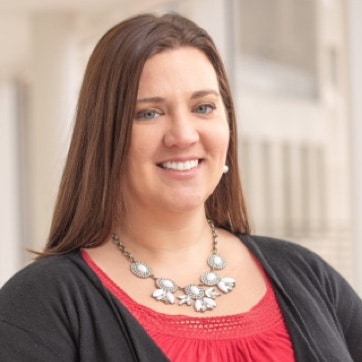By Leslie Wells, assistant director of communications, O’Neill School at IUPUI
In 2017, Nigena Livingston was building Urban Act Academy, a K to 8 charter school in Indianapolis, from the ground up. She had worked as an educator for more than 15 years, but launching a charter school was unfamiliar territory.
She was beginning to write the school’s charter and establish its founding board, but she lacked clear direction.
“I had been a principal but felt like a novice when it came to being a CEO,” Livingston says. “I needed more information about boards and board management. I wanted to know how to support my board so that we would know we were on track and doing right by our students.”
So she enrolled in IU Executive Education’s Effective Nonprofit Governance certificate course through the O’Neill School. The six-session program includes lessons on the responsibilities of board members, the evolution of a board, how members help with fundraising, and how to best hold CEOs accountable for advancing the organization’s mission.
“The board is essential to any organization’s success,” says Livingston. “If it’s not treated as essential, your organization won’t thrive. This course included all the information I needed to ensure I was recruiting board members who could participate in meaningful ways and advance our organization.”
Shortly before Livingston began her journey, Amanda Leffler — a nursing education consultant who serves on various boards — was elected board president for the Indiana League for Nursing. She says that election aligned perfectly with the Effective Nonprofit Governance program.
“Enrolling in the program was a strategic decision on my part,” she recalls. “This was an opportunity to learn how to govern a board of directors and grow into a new role.”
Leffler says the classes help participants better understand a nonprofit board’s purpose, how it should operate and how board members can help an organization fulfill its mission.
“Understanding the fundamentals taught in this course is critical to knowing where your organization is, where you want it to go, and how to get there,” Leffler adds.
In addition to content, Leffler and Livingston agree that the diversity of their cohorts provided a deeper understanding and context to the lessons they were learning.
“It was helpful to have non-educators in the room with organizations that face similar challenges to us,” Livingston says. “That helped us turn other organizations’ missteps into teachable moments.”
One critical takeaway for both Leffler and Livingston was gaining a better understanding of the various stages of board development and how to help boards progress — or take steps back — to grow alongside the nonprofit.
“I remember when our board was being nice but not being critical,” Livingston says. “Because of this course, I was able to provide leadership about how they should push me. Rather than just talking about what we want to do, we’re now becoming more evidence-based and developing policies.”
Leffler says that learning the five stages of the nonprofit organization lifecycle has given her “an immense advantage” over her colleagues.
“I approach each of the boards on which I serve in a different way depending on where they are in their life cycle,” she says.
She uses that knowledge to mentor her fellow board members and her nursing students.
“This course trains the trainer,” she says. “I took what I learned and pass it on to help others with whom I work grow, as well. I teach my students how to craft an elevator speech because that is something they need to know, no matter where they are.”
The lessons learned in the program extend well beyond the boardroom. Leffler says not only did she learn to be a better board member and leader, she also learned how to apply what she was learning to her everyday life.
“The knowledge and experiences I gained throughout the program are truly invaluable, especially for anyone looking to serve in the nonprofit sector,” Leffler says. “The tools are practical and simple to implement into everyday practice.”

Leslie Wells joined the O’Neill School at IUPUI as its assistant director of communications in 2018. She previously spent more than a decade in broadcast news and three years as media relations manager at the Indiana Youth Institute.

